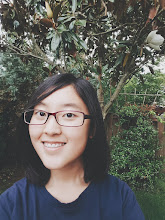So today you might ask, why this new blog series? Why should you care about it?
Why is diversity in books important?
Here's your short answer: because people are still feeling compelled to write posts and articles like these. Frankly, that's kind of an embarrassment to the publishing industry.
Of course, it's a lot more complicated than that. It's an issue that has spanned generations of both little and large examples of struggle in our society, and most of all, it's an issue that needs to be talked about in this field and numerous others.
This post will cover diversity as a personal issue - I'm hoping to cover statistics in more detailed, specific posts in the future. Additionally, it's an issue that I can ramble about for a while, so bear with me.
First, let's define diversity as it's being used here. Diversity is the inclusion of elements, particularly characters, from different backgrounds - whether that means disabilities (I loathe that word, by the way), different races, different sexual orientations, different body types, or anything that I've missed, it denotes anything that's different from what's considered "mainstream". It also includes authors and settings that are diverse.
No, scratch that. I think a better definition of diversity is anything that seeks to eliminate the concept of "mainstream" by celebrating differences.
I'm Korean, and as a girl of color growing up in the United States with an unending love for literature, it's such a source of joy to me whenever I come across a new book with a Korean protagonist - or even a Korean side character. Stories like Slant by Laura E. Williams make my day pretty much because I can finally read about a Korean girl like me. Finding out about authors like Ellen Oh is unbelievably cool, because I have a precedent who tells me that I can be an author, too. I feel lucky just to have one character or author once in a while who is of my racial background. I'm sure that I'm not the only one who feels this way, and I'm definitely not the only one who feels this is unfair to minority readers. It's a feeling that's very difficult to articulate in this almost-xenophobic literary environment, especially for young people like me.
I understand that I'm lucky. I live in a neighborhood with a fairly high Asian population, so racist comments certainly aren't as severe as they might be in other places. I can honestly say that I've never wanted to be anything other than Korean. I love being bilingual, celebrating the holidays of my culture, and being proud about my country. But I've never been able to shake the lingering feeling that even books, some of my favorite parts of life, are biased against me.
That needs to change. I can't stress it enough. Readers can't stress it enough.
The thing is, the landscape of the book world is lagging pretty far behind that of the wider one. I hate to say it. Shocker - the world has been changing very, very fast. And a significant part of a generation is growing up thinking that stories should only revolve around one or two types of people. Thankfully, with these rapid changes, it's becoming more and more okay to be vocal about issues people are passionate about.
Lately, there's been a lot of positive discussion on how Caucasian, cisgender, heterosexual, etc. etc. characters are dominating literature, especially young adult fiction. We're starting to face the fact that we live in a world with people of all forms, and books that only portray a small fraction of those forms are a disservice to that world. This certainly isn't a new topic of debate, but it's finally being recognized, bit by bit, by mainstream outlets, and that's a wonderful start.
The recent #WeNeedDiverseBooks campaign, which you may have spotted around social media, brought what is hopefully a powerful spotlight on diverse literature and authors. Please see what that was all about here, because although the social medial campaign may be over, the discussion is most definitely not.
In the coming weeks, I hope to spread awareness about the issue even further with the DIBS initiative. Please don't hesitate to correct me or share your thoughts (kindly, though), because this is an endeavor to support anyone and everyone.
And remember:
What are books if not a reflection of reality?
What is our reality if our books marginalize diverse people?
And, really, is that a reality we want to live in?


0 thoughts:
Post a Comment
I adore getting blog comments and am so grateful that you want to leave one! However, I'd like to ask that you please keep things respectful and spam-free. Thanks!